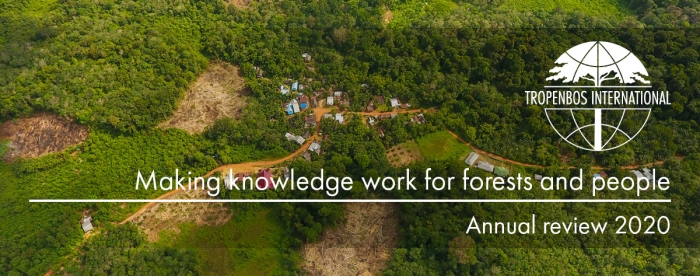This annual review highlights a wide variety of outcomes of our work in 2020.
Download here the Annual review 2020
In 2020, the COVID-19 pandemic seemed to slow everything down, except forest loss. More than 12 million hectares of tree cover in the tropics disappeared during the year. In some remote areas, COVID-19 measures resulted in a decrease in law enforcement, triggering opportunistic behaviour by actors looking to convert forested lands for agriculture. And it is feared that the economic downturn caused by the pandemic will encourage governments to cut budgets for environmental protection and to favour the expansion of agrocommodities, further speeding up deforestation. It makes our work to promote climate-smart landscapes all the more urgent.
This annual review highlights a variety of outcomes of our work, which illustrate the diverse ways in which we contribute to sustainable land use, inclusive governance, and responsible business and finance, as building blocks of climate-smart landscapes. For example, farmers in Ghana started reforesting riverbanks, a credit union in Indonesia adopted sustainability standards, and the government of Bolivia changed logging regulations to benefit indigenous communities. At the international level, the European Parliament adopted recommendations for a legal framework to halt and reverse EU-driven deforestation, and we continued to advance our understanding of innovative finance models for sustainable landscapes.
